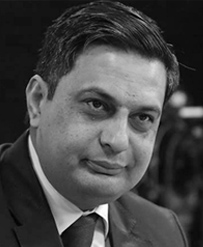Learn from Afghan peace-talk mistakes: Zalmay Khalilzad is not the solution

By Dr. Davood Moradian
Afghan leaders largely greeted the collapse last month of President Trump’s Camp David summit with the Taliban with relief. While Russia, Pakistan and Iran have all been supportive of talks with the Taliban, many Afghans refuse to forgive the Taliban for its targeting of civilians, its misogyny and its violence toward other ethnic and sectarian groups. The Indian government and European Union were likewise dubious about Taliban promises and Washington’s strategy.
After a brief hiatus, U.S. Special Envoy Zalmay Khalilzad has resumed negotiations. If the process is not again to collapse, it is crucial to understand why Khalilzad’s plans previously failed.
Personnel is policy. There has been little public scrutiny about Khalilzad’s long history in Afghanistan and why Afghans see him as compromised. Khalilzad spoke little during the Soviet occupation of Afghanistan and subsequent civil war but, after the Taliban seized power, he downplayed their radicalism and whitewashed their image to an American audience. He depicted them as a “traditional orthodox Islamic group” and assured Washington that they were “welcomed by the Pashtun as a cure for years of brutal anarchy,” and he assured his American audience that “the Taliban does not practice the anti-U.S. style of fundamentalism practiced by Iran.” He subsequently sought to do business with them, and worked as their de facto fixer, introducing them to American authorities on behalf of the U.S. oil company UNOCAL.
While Presidents Bush and Trump may have believed Khalilzad’s Afghan background gave him extra insights as an American policymaker, Afghans broadly see Khalilzad as an exile who has been unable to leave his Pashtun ethnic chauvinism behind. Prior to the Taliban’s collapse, he warned of the danger of “Uzbeks and other smaller ethnic groups’ centrifugal trends” and the need for “a single authoritative government” to deal with them.
The Sept. 11, 2001 terror attacks brought Khalilzad into the center of Washington power and kickstarted his career. In Kabul, he acted not as a mediator, but as a viceroy whose words came directly from the president. He tolerated no debate, dissidence or defiance. In Washington, he told those in power what they wanted to hear. To Afghans he was Ahmed Chalabi and Paul Bremer rolled into one.
This dual role helped him to engineer many important decisions in the aftermath of the Taliban collapse, shaping a strong presidential system rather than a diffuse parliamentary republic, and empowering both post-9/11 presidents: Hamid Karzai and Ashraf Ghani.
The article was first published in Daily News on October 21, 2019.
The author is director of the Afghan Institute for Strategic Studies and former senior policy adviser in the Ministry of Foreign Affairs.
Academicians and Officials interested to publish their academic pieces on this page, please approach us through: opinions@aiss.af
The article does not reflect the official opinion of the AISS
